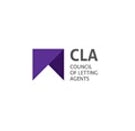Minimum Energy Efficiency
The Scottish Government Guidance on the forthcoming minimum energy efficiency requirements for private rent houses has now been published.
The requirements
• Minimum Band E at change of tenancy by 1/4/20
• Minimum Band E for all tenancies by 31/3/22
• Minimum Band D at change of tenancy by 1/4/22
• Minimum Band D for all tenancies by 31/3/25
The full guidance can be found using the following link:
Scottish Government Energy Efficiency Guidance
The Guidance is useful as it gives some flesh to the proposals and although it is described as accompanying The Energy Efficiency (Private Rented Property)(Scotland) Regulations 2019 (the Regulations), at the time of writing the Regulations were not available.
What is covered by the Regulations?
Properties covered are those with an EPC and covered by the Repairing Standard under the Housing (Scotland) Act 2006 (ie “tenancy of a house let for human habitation”).
That means holiday lets are not covered, nor are tenancies that commenced before 2009 or where tenant been in a property for more than 10years.
Exemptions
The guidance gives details on exemptions and how to apply for an exemption.
Briefly, there will be a Register of Exempt Properties maintained by local authorities – PRS Exemption Register. Once registered, it will last for 5 years.
Exemptions can be obtained and properties registered as exempt where:
1) All relevant improvements have been made;
2) Any relevant improvements would cause damage to the fabric or structure of the property;
3) There are protected species within the property that cannot be disturbed;
4) Relevant improvements cannot be carried out because they would affect the listed building or conservation status;
5) Where the Landlord plans to dispose of the property by way of demolition;
6) The Tenant (or relevant third party) has refused access or placed unreasonable conditions on such access;
7) Where the cost of completing improvements will exceed £5,000 to achieve Band E and a further £5,000 to achieve Band D.
The guidance gives examples of how you can prove these exemptions – for example in relation to the Cost Cap Exemption you will need to supply at least 3 quotes from different contractors to the appropriate Local Authority.
In relation to the Consent Exemption, you will need to be in a position show that you have made reasonable efforts to obtain that consent. The Guidance suggests that Landlords will have to demonstrate to Local Authorities that they have made all reasonable attempts to contact the tenant including providing copy correspondence.
Temporary exemptions available too in certain circumstances to allow for the situation where there has been a change in the landlord of a property or the circumstances between the landlord and tenant, for example where a property is purchased with a sitting tenant. Temporary exemptions will last up to 6 months.
Enforcement
For Local Authorities to monitor via Compliance Notices (where there is a breach of the Regulations) and Penalty Notices (where there is a failure to provide information)
Fines
• Up to £2,000 if a property does not meet the required standard for less than 3months;
• Up to £4,000 where a property does not meet the required standard for 3months or more;
• Up to £1,000 for providing false or misleading information; and
• Up to £2,000 for failure to comply with a Compliance Notice
Funding
It is understood that there are plans for loan schemes to assist with funding for property improvements and Home Energy Scotland can provide advice on such funding options. Their contact details can be found in the guidance.
The Future
The Scottish Government is also planning to increase Minimum Energy Efficiency requirements further to Band C, with the that all houses meet that standard by 2040.








